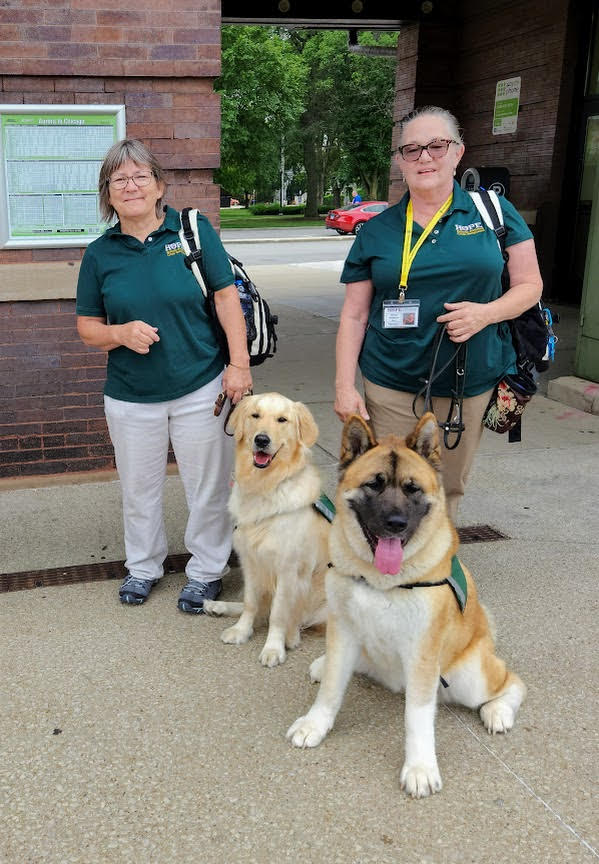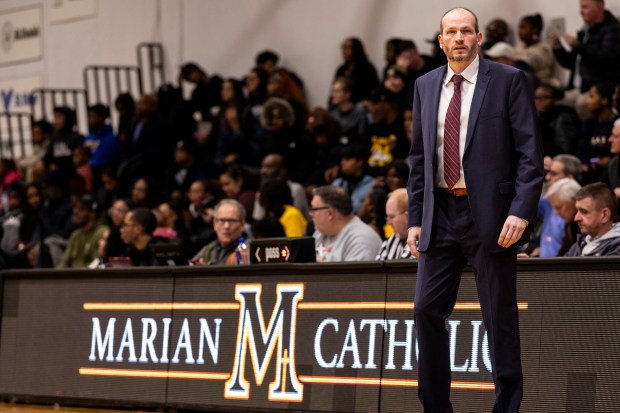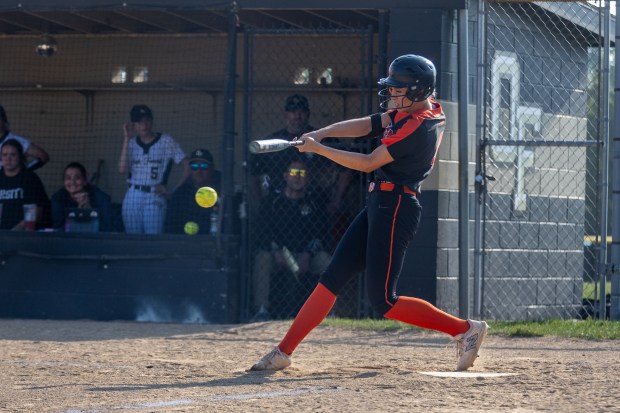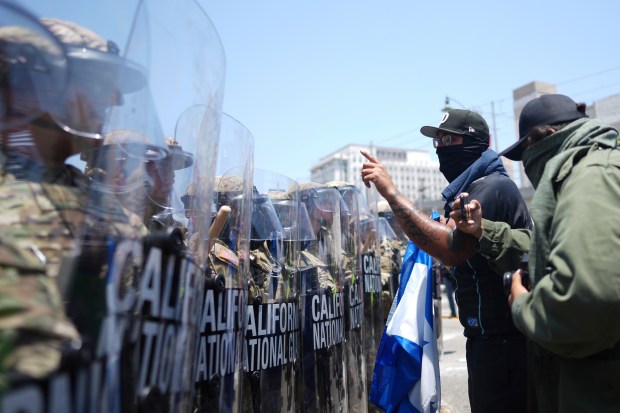Aurora resident Janel Zuranski, 62, has been a lifelong lover of animals who turned that passion into a career as a veterinarian.
Yet despite her retirement, her animal journey continues by working with her dogs and fellow partners who volunteer to go all over the country on deployments helping bring comfort to people in need.
Zuranski is a member of a nationwide organization known as HOPE Animal-Assisted Crisis Response whose mission, according to its website, is “to provide comfort and encouragement through animal-assisted support to individuals affected by crises and disasters.”
The organization has been serving people affected by disasters and traumatic events, at no cost, since 1999.
Zuranski said she began working with the Midwest Region of the HOPE organization and currently serves at the state coordinator for Illinois.
“I’ve been involved with HOPE since 2019 and I’ve had two dogs. Gossamer was my first and he was an extraordinary dog who passed away this year and I have my other named Moose who is working with HOPE right now,” Zuranski said.
Zuranski said she had been doing therapy work with her dogs for some time “before I found out about HOPE through a friend that works for the Naperville Police Department.”
“I met them, screened, and did training with them in 2019 and just loved the work that they do,” she said of HOPE. “In terms of the dogs and their training, HOPE dogs have to be therapy dogs for a year before you can apply to this organization. Therapy dogs are screened by a handful of different therapy dog organizations and when you pass that you can get into hospitals and schools and libraries for reading programs.”
While Zuranski said “there is a ton of great work that therapy dogs do, HOPE goes above and beyond that with a lot of training and mentoring in order to do crisis response work.”
“We’ll go if there has been a disaster, we’ll go to line-of-duty deaths. My local HOPE partner and I just flew out to California after the wildfires and spent a week out there,” she said. “We went to the disaster recovery centers and the EPA sites there, and operation control sites.”
When deployed, Zuranski said “there is a very specific chain of command and we never go if we’re not invited.”
“We’re set up by regions and California had these fires to deal with, and there was more than their regional teams could handle. So, they called other teams from across the country,” she said. “From that my partner and I – we signed up for it – we flew out there. Therapy dogs only work generally for two hours in a very predictable and known environment. We often go out to places where you don’t know what to expect.”
Zuranski’s partner with the HOPE organization Heather Pontious of Naperville said she has been working with HOPE for three years and that both of them “currently have animal assisted therapy dogs at Edward Hospital.”
“We’ve been deployed many times and also work with Hesed House, Honor Flights, the Alive Center in Naperville – we go to all those places,” Pontious said.
While the organization partners frequently with local police and fire departments and schools, it also works in conjunction with the Salvation Army, something that might come as a surprise to some who think of it only as a group that provides food, toys and rental support through funds raised during its famous Red Kettle drives.
Pontious said the Salvation Army “gives hope in times of crisis.”
“They do a lot of things – they do feed people, while the Red Cross is the one that mostly does shelter,” she said. “The Salvation Army does a huge amount of training, crisis response, psychological first aid and we have partnered with them to go to many of their trainings and conferences where they have this kind of training to help those who are either in an active crisis or dealing with the aftermath.”
“This work with HOPE broadens or deepens the work of the Salvation Army,” Pontious added. “I’m the driver, and the dog is the draw. I’m there to hold space for the person who’s been traumatized and is having one of the worst days of their lives – to start to process that and have a moment of normalcy or just cry if that’s what they need to do. This helps people start to heal.”
Major Joaquin Rangel, who works at the Salvation Army Aurora Corps Community Center in Aurora, said Zuranski and others “are involved with our emergency disaster services” through the HOPE program.
“A lot of people aren’t aware of having this kind of connection with dogs and the Salvation Army,” he said.
He said the Salvation Army offers a broader range of services than some may realize.
“It would be great if people knew more about us and those services, not just the Red Kettle and Christmas,” he said. “There’s more to our organization than that.”
Zuranski said HOPE volunteers help the Salvation Army and “partner with their emotional and spiritual care teams.”
“We have done a ton of work with the Salvation Army,” Zuranski said.
“They call me and let me know what their needs are and if I can get teams we go together with them,” she said. “They’ve been just extraordinary in their service and kindness and I love working with them. They’ve also provided a ton of great training on emergency and disaster response for us.”
David Sharos is a freelance reporter for The Beacon-News.





